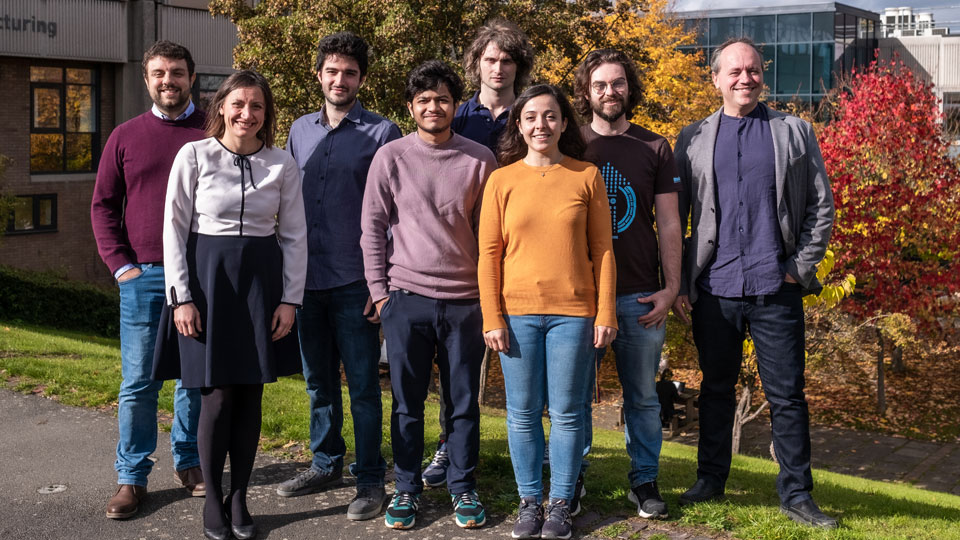The research, published in Advanced Optical Materials, introduces a novel approach to terahertz pulse generation through the use of resonant fully transparent dielectric metasurfaces.
Terahertz radiation sits between microwaves and infrared light on the electromagnetic spectrum and has the potential to revolutionise a wide range of applications due to its ability to penetrate various materials without the damage associated with ionising radiation like X-rays. However, the generation of terahertz pulses has traditionally been challenging, limited by the materials and technologies available.
The Loughborough team, led by Dr Luke Peters and Professor Marco Peccianti, has successfully developed a scalable emitter design based on fully dielectric-resonating meta-atoms. This innovative design demonstrates a remarkable 40-fold efficiency enhancement in terahertz generation compared to traditional methods. Unlike metal-based or semiconductor-based metasurfaces that suffer from high absorption or require highly resonant regimes, the team’s dielectric metasurfaces exploit morphology-mediated resonances and an inherent quadratic nonlinear response, offering a more efficient and versatile solution for terahertz pulse generation.
This breakthrough is expected to have wide-reaching implications, including the enhancement of large-area imaging microscopy and spectroscopy techniques, as well as the development of new wireless communication systems that could surpass the limitations of current technologies.
Loughborough University’s Emergent Photonics Research Centre continues to be at the forefront of photonics research, contributing to the advancement of knowledge and technology in the field. This research was supported by funding from the European Research Council, the UK Engineering and Physical Sciences Research Council, The Leverhulme Trust, and the Italian Ministry of University and Research, among others.
